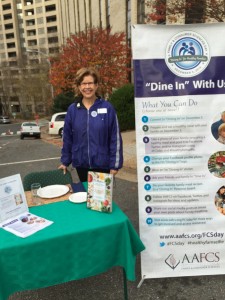By Eileen Jones, Master Financial Education Volunteer
Social Security numbers (SSNs) are the single most important piece of government-issued forms of identification a U.S. citizen is granted, even more important than a driver’s license or even a passport! A valid SSN can be used by people attempting to hide their true identities as well as undocumented workers. With a stolen SSN, a person can do almost everything that you or I can do with our legitimate SSNs. In essence, they are assuming another person’s name and can and often are successful at stealing property and money from that person.
Criminals, in particular cyber criminals, are on the hunt for valid SSNs because it is the most valuable piece of identification they can get their hands on. While you certainly do not want to be robbed of your identity or your valuables, an identity thief can use your name and SSN to do criminal acts. If this happens, the police are going to come looking for you because it is your identity that has been associated with the crime, not the thief’s.
You can close a credit-card account or get your debit-card reissued if it is compromised, however you cannot close your SSN. If you’ve lost your SSN number card of it has been stolen and by some miracle you got it back, you must assume that the number itself has been stolen and act immediately!
Below are two options that may help you if your SSN is stolen or compromised, but again – act quickly!
#1. Join a trusted and reputable identity-theft protection service. Once you act and set the ball in motion, people who try to use it will be stopped dead in their tracts. Alerts from your identity theft protection agency will be immediately sent to you, giving you the information on the person (people) attempting to open accounts using your SSN. Once you respond that this is not you, the identity theft agency puts a stop to these applications immediately before the thugs can even complete the first step.
#2) You can do it yourself! Contact any or all of the 3 credit bureaus immediately to place a freeze on your credit file.
TransUnion (800-916-8800)
Experian (888-397-3742)
Equifax (888) 766-0008
This will prevent others from opening accounts in your name. You can also place a fraud alert on your file if you have been a victim of identity theft. As soon as you contact the first bureau, the other two will be notified. Make sure that you renew the fraud alert every 90 days until you’re satisfied the matter has been settled. Be aware that this process could take years.
- Tell each of the three bureaus that your SSN has been stolen. You will be given free copies of your current credit report from each bureau. Read over these reports, carefully looking for unfamiliar accounts and unknown inquiries from companies.
- Report the theft of the SSN to the IRS @ 800-908-4490. That will prevent tax-fraud thieves from filing tax returns in your name, and if applicable, collecting your tax refund.
- File an identity-theft report with your local police. The police report will be necessary to help clear your records and your name in the future.
- Keep track of, record, report and close all fraudulent accounts by contacting both the companies holding the accounts and the credit-reporting agencies. This will keep your credit as clean as possible going forward.
If several years pass after the theft of your SSN, and the problems arising from the theft continue, you may want to consider applying for a new SSN. But before you do, there are several things to consider: It’s not easy, in fact, it is nearly impossible. In rare instances the government will issue you a new SSN, but it is very rare. Even with a new SSN, your old SSN will never go away completely. The Social Security Administration never invalidates an SSN once it has been issued and used.




